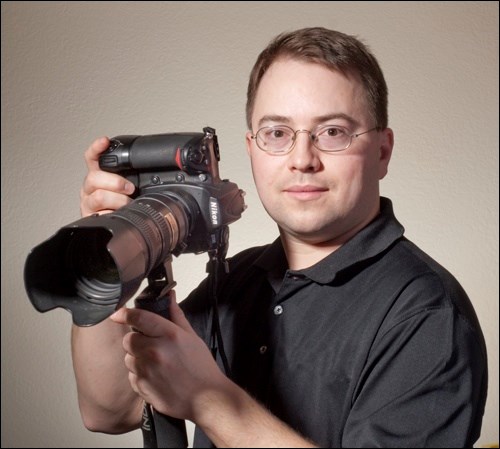When I was 10, my parents split and I ended up living in Yorkton. This was a big change from living on a farm, for sure, especially since we ended up living in an apartment that was less than 100 yards from the Parkland Mall.
We didn’t have money to spend, but oh, how thrilling it was to live so close to the mall. There were two stores in particular that I just loved. One was Coles, the bookstore, and the other was Radio Shack. If I had won a lottery, I probably could have spent it all at Radio Shack.
Alas, there were no lottery winners, but there was one very small consolation prize. My best friend, Colin, who also didn’t live terribly far from the mall, introduced me to the Radio Shack battery club.
They used to have these little bins of loose batteries, where you could buy individual AA, C or D batteries. The least expensive, and least effective, were the red ones. They had almost no battery life compared to a self-respecting Energizer. But with a battery club membership card, once a month, you could present said card to the staff and they would punch it and give you a free battery.
Since everything on the planet requires at least two batteries, it didn’t go very far. But it was something. And it was free! Oh, how I looked forward to that free battery.
Feb. 5, Radio Shack announced it is going into bankruptcy. This is not a case of reorganization. It’s done.
The company had been done in Canada for a decade, where it was “The Source by Circuit City” and then “The Source” after Circuit City itself went bankrupt in 2007.
For any true geek going back nearly 100 years, Radio Shack was home. It was where you would walk the aisle and look at all the doodads and whatnots and think, “I wonder what I could do with that?”
True geeks, beyond my pocketbook and mental capability, could do things with this stuff. They could take a breadboard and wire a radio, or use diodes and resistors, knobs and buzzers and make magic. I dare say not one electrical engineer in this country over the age of 30 could resist its charms.
I never got into that stuff, but I did have a penchant for something that came and went when I was still a toddler – CB radio. My dad had cabinets full of old CBs, an old tower and antenna on the side of the house, and a base station CB on his desk. By the time I was 12, I couldn’t get enough of them. He once had one in every vehicle, but for reasons I didn’t know or understand, had removed them. Three walkie-talkies and a dozen radios filled the storage room. Most were “Realistic,” the Radio Shack brand.
Thus, when I was old enough to learn the basics of wiring due to a Grade 10 electricity class, I dug up those old CBs and put them in everything I could. This was long before everyone had a cellphone. Why wouldn’t we use them, I kept asking? So one went in each combine and grain truck. The pickups got one each. I even put one in my ’81 Dodge Omni.
My friends took great humour at that. Having found a Realistic loudspeaker in this radio junk box, I wired it into my car, behind the grill. Something every 16 year old needed, my friends often pointed out. It was the butt of jokes for years. But to me, it was a point of pride. I had done something none of my peers had even thought of. And nearly all of it came out of Radio Shack.
I still had a CB radio in each of my personal vehicles until 2008, when I bought my first SUV. There was never really anyone to talk to except on the farm during harvest, and the occasional trucker when I was going to pass him on the highway. One time I talked to a trucker on a very late night drive from Grande Prairie to Edmonton, just to stay awake. But I had one nonetheless.
Before you laugh too hard, ask yourself – when was the last time you texted someone? Why did you do it? How is a text fundamentally different than a CB radio? In some ways, it’s a step back from a CB. You can transmit more data via voice than text. But the key thing is the ability to talk to others beyond the distance your voice can carry.
That was always the promise of Radio Shack. It truly was a place where, for generations, you could expand your horizons and talk to people. Once it was ham radios. Then CBs. What’s left of Radio Shack is going to focus on cellphone sales. It’s all the same thing.
Radio Shack gave the geeks of the world the ability to speak to someone who thinks like them, someone they might never otherwise encounter. It might have been listening to astronauts over the ham radio, or skip across the Atlantic on the CB (which we would occasionally get). It broke the loneliness inherit in being a geek.
Geeks the world over are in mourning for their best friend. I’m one.
— Brian Zinchuk is editor of Pipeline News. He can be reached at [email protected].




